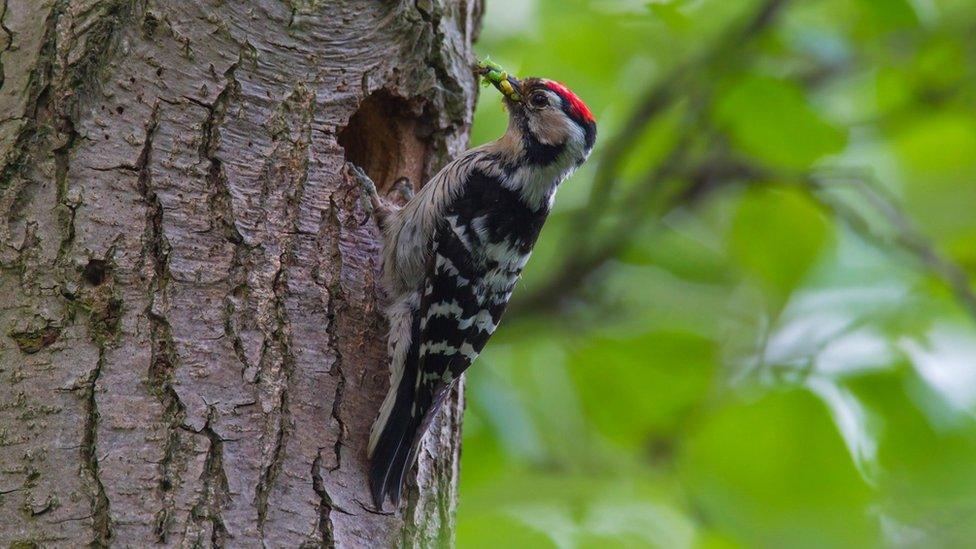Rare woodpecker returns to Dorset 'due to organic farming'
- Published

A lesser spotted woodpecker has been seen at Hollis Mead organic dairy farm in Corscombe (library picture)
A woodpecker that was thought to have almost died out locally has been spotted on a farm and experts believe it is due to organic farming practices.
The lesser spotted woodpecker was seen at Hollis Mead Organic Dairy Farm in Corscombe by the Dorset Wildlife Trust (DWT) during a regular survey.
It is a Class 4 endangered bird and on the red list, external.
Nationally, its population has fallen by 83% since 1970 and there are only 12 breeding pairs in Dorset, the DWT said.
Emily Newton, landowner liaison officer at DWT, said the bird, which is the size of a house sparrow and "very secretive and shy", was spotted on the farm a couple of months ago.
"Now we know they are there we can work with Hollis Mead to ensure that habitat is protected and make sure farmers are aware the lesser spotted woodpecker is in the area," she added.
Industrial farming practices have not been good for wildlife, according to the farm's managing director Rex Fisher.
He said: "Agriculture has done a terrible thing to nature in this country."
'Unmanaged woodlands'
He believes the organic approach his farm is taking, such as not using insecticides or pesticides, will be beneficial for biodiversity.
"The woodlands are unmanaged, trees fall where they will so bugs can feed," Mr Fisher said.
"We don't cut hedges. We want a wild farm and we believe our farming method will help nature."
DWT carries out a quarterly biodiversity survey on the farm where 200 milking cows are 100% pasture-fed and provide about a quarter of the milk yield of an industrial herd.
Ms Newton said its organic practices will have made a difference for the lesser spotted woodpecker and other species.
"If you've got a 'less is more' approach in your farming system, which Hollis Mead supports - they don't use artificial fertilisers, they extensively graze, so the natural habitats are allowed to grow," she said.
Mr Fisher added: "It's a great accolade to know what we're doing is working."

Follow BBC South on Facebook, external, Twitter, external, or Instagram, external. Send your story ideas to south.newsonline@bbc.co.uk, external